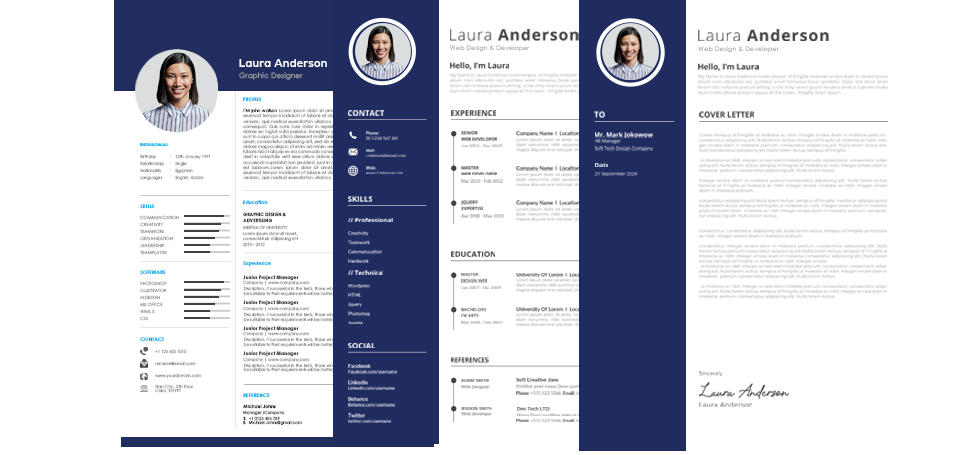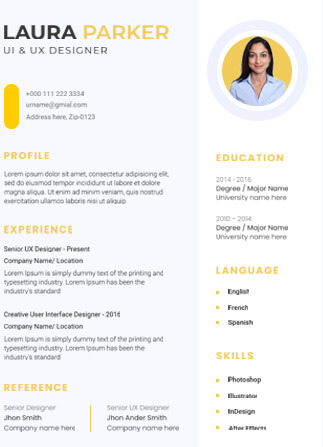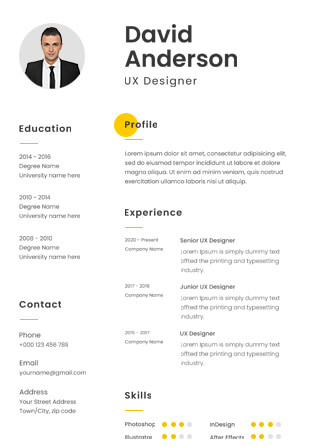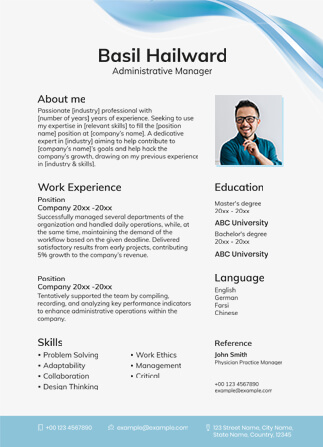Get Hired With Confidence: Impress Employers With Our Nursing Resume Examples
Landing your dream job as a nurse can be difficult, especially in today’s highly competitive job market. But fear not; our nursing resume examples are designed to help you showcase your skills, experience, and qualifications on your resume in a way that catches the attention of hiring managers and recruiters. With our nursing resume examples, you’ll be well on your way to a successful and rewarding career in nursing.

Stand Out in The Nursing Field with Our Professional Nursing Resume Examples
Crafting a strong nursing resume that showcases your unique skills and experience may sound easy; however, it’s not. Our resume examples are designed to guide you through the process easily. With a perfect nursing resume example, you can highlight your qualifications and achievements that make a lasting impression on hiring managers and increase your chances of securing an interview. Let us support you in taking the first step toward a successful career.

This space will cover the following:
- How to get the perfect nursing resume?
- What is the right format type for a nursing resume?
- What are the ideal keywords for a nursing resume?
- How to write a compelling summary for a nursing resume?
How to Get the Perfect Nursing Resume?
Crafting the perfect nursing resume requires careful consideration of your education, skills, experiences, and achievements. Here are some instructions to create a winning nursing resume:
- Strong Headline or Summary: Use a clear, concise title that describes your nursing expertise and experience, such as “Registered Nurse with 5+ Years of Experience in ICU.”
- Use a Professional Format: Choose a clean and easy-to-read format for your resume, using a clear font and white space to make your content stand out.
- Highlight Your Academics: List your nursing degree and any relevant certifications, including any continuing education courses or additional training you may have completed.
- Emphasize Your Nursing Skills: Focus on the nursing skills that you possess and the areas in which you excel, for instance, critical care, wound care, or patient education,
- Include Your Nursing Experience: List your work experience chronologically, first emphasizing your most recent positions. Use bullet points to describe your responsibilities and accomplishments in each role.
- Use Numbers and Metrics: Quantify your achievements and accomplishments using numbers and metrics. For example, mention the number of patients you have cared for, the number of successful procedures you have completed, or the percentage of patients who have improved under your care.
- Use Keywords: Use keywords and phrases from the job description in your resume to show that you have the necessary skills and qualifications for the position.
By following these tips, you can create a nursing resume that showcases your skills, experience, and achievements and helps you stand out from other candidates.

What Is the Right Format Type for a Nursing Resume?
The format of a nursing resume should be clear, concise, and easy to read. There are three main resume formats: chronological, functional, and combination. Here is a breakdown of each format:
- Chronological Format: This format is the most common and traditional resume format. It focuses on your work history, starting with your recent job and working backward. This format can be beneficial if you have a strong work history in nursing.
- Functional Format: This format focuses on your skills and accomplishments rather than your work history. It is a good option if you have gaps in your employment history or are changing careers. This format allows you to highlight your nursing skills and achievements.
- Combination Format: This format is a mix of chronological and functional formats. It lets you showcase your work history, nursing skills, and accomplishments. This format is great for strong work history and for highlighting your skills and achievements.
Ultimately, the right format for your nursing resume will depend on your circumstances and career goals. Choose the format that best highlights your strengths as a nurse and showcases your experience and skills most effectively.
What Are the Ideal Keywords for a Nursing Resume?
When creating a nursing resume, it’s important to include relevant keywords emphasizing your skills, experience, and education. Here are some ideal keywords for a nursing resume:
- Patient care
- Medical terminology
- Clinical skills
- Care plans
- Electronic health records (EHR)
- Pharmacology
- Nursing assessments
- Health promotion
- Quality assurance
- Teamwork
- Leadership
- Communication skills
- Critical thinking
- Nursing ethics
Remember to include keywords specific to your nursing fields, such as pediatric nursing, oncology nursing, or geriatric nursing. Also, use keywords from the job description to ensure that your resume gets passed by automated applicant tracking systems (ATS) and is seen by a hiring manager.
How To Write a Compelling Summary For a Nursing Resume?
A compelling summary for a nursing resume should highlight your relevant experience, skills, and achievements clearly and concisely. Start by stating your job title, years of experience, and areas of expertise. For example, “Experienced registered nurse with over 5 years of clinical experience in pediatrics and emergency medicine.”
Next, mention your key skills, such as patient care, medication administration, and documentation. Use keywords that match the job description to show that you have the skills the employer is looking for.
Ultimately, highlight your accomplishments, such as improving patient outcomes, receiving awards, or leading successful projects. Quantify your achievements wherever possible, such as “Improved patient satisfaction scores by 20% through implementation of new care protocols.”
A strong nursing summary should demonstrate your expertise and accomplishments and how you can contribute to the organization’s goals. Keep it brief, focused, and tailored to the job description to catch the employer’s attention and encourage them to read your full resume.
Unbeatable Resume Options with Unmatchable Quality
Quick Questions
A nursing resume should include your contact information, a summary or objective statement, education and licensing information, work experience, relevant certifications or training, and your skills and abilities.
Always include specific details about your nursing experience, such as the types of patients you cared for, the procedures you performed, and any notable achievements or outcomes. Use action verbs to describe your duties and responsibilities, and quantify your accomplishments whenever possible.
A cover letter is a significant component of your job application. It allows you to introduce yourself and explain your interest in the position. Remember to highlight your relevant skills and experience and explain how they make you a good fit for the job.
You can include many skills in your nursing resume, like, critical thinking, communication, patient care, teamwork, leadership, and technical proficiency. Be sure to highlight any specialized skills or knowledge related to your specific area of nursing practice.
Avoid including irrelevant or outdated information, such as high school activities or jobs you held long ago. Also, proofread your resume carefully to avoid spelling and grammar errors. Finally, be careful not to include confidential or sensitive information about patients or employers.








